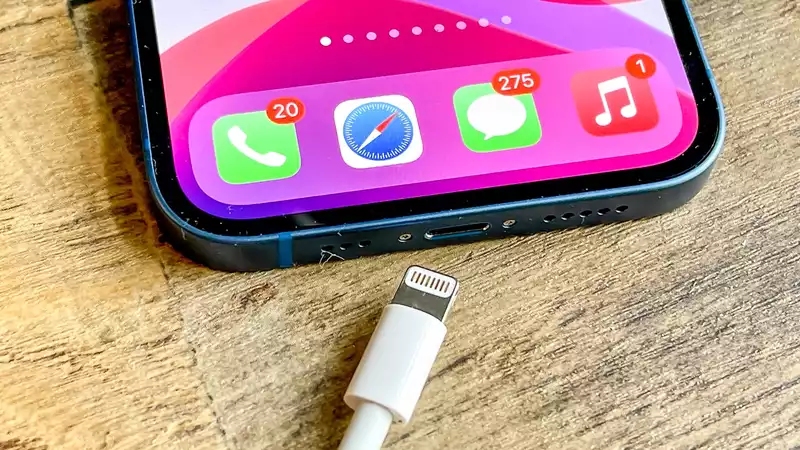Update: There are new rumors that the iPhone 14 Pro will have a USB-C connection.
Given that the rest of the tech world has switched to USB-C, including the new iPad mini 6, the Lightning port on the new iPhone 13 remains a persistent source of concern. The European Union seems fed up with Apple's insistence on its own technology.
As reported by the New York Times, the EU has announced new legislation to standardize cell phone charging ports among cell phone manufacturers, requiring all new phones to use USB-C after 2024.
This could mean that, at least in Europe, the 2023 or 2024 iPhone will finally have a USB-C port. Granted, it would be foolish for Apple to sell USB-C iPhones in Europe and Lightning iPhones elsewhere. In other words, if the bill passes, it could effectively kill off the proprietary port, which was first introduced in 2012.
"Chargers power our most important electronic devices. As the number of devices grows, incompatible or even unnecessary chargers are being sold," European Commissioner for Trade Thierry Breton said in a press release. 'We will put an end to this. Our proposal will allow European consumers to use one charger for all their portable electronic devices.
According to the Times, Apple is not in favor of the proposed law. Apple argues that the switch to USB-C would effectively create more waste. An Apple spokesperson told TechRadar, "We remain concerned that strict regulations requiring only one type of connector will stifle innovation rather than encourage it, and ultimately harm consumers in Europe and around the world."
But that claim appears to ignore the fact that USB-C has been a standard in multiple devices, including many of Apple's own products, for years. And given that Apple no longer bundles chargers with its phones and that the iPhone 13 line supports 20W charging speeds, the average consumer may go out and buy Apple's own 20W fast charging brick instead of using one they may already have.
Many consumers see the charging port as either iPhone or Samsung, not Lightning or USB-C. This EU law could essentially unify charging and reduce confusion between iPhone and Android ports.
Apple also argues that regulating certain technologies stifles innovation. If the EU had mandated such a law back in 2009, they say, it might have prevented the widespread adoption of both Lightning and USB-C. Bruton brushed off the proposal as the usual response he gets from technology companies whenever this type of law is proposed.
It may still be some time before USB-C becomes the standard, as the proposal would need to be voted on by the European Parliament and then adopted by device manufacturers. In the meantime, opposition from Apple is expected to intensify.










Comments